
Early in 2024 Devon Centocow Link were faced with request for funding for food for the pre-schools; a challenge we could not ignore.
The cost of food in South Africa had rocketed and opportunities for work are scarce. The result of these facts is that attendance at pre-schools is poor as families cannot provide the food for their children’s lunch and many of the pre-schools do not have the funds to provide lunch for the children.
The “Thrive by 5” report produced by South Africa’s Department for Basic Education states that one in five children attending Early Education Centres show signs of long term malnutrition.
Devon Centocow Link decided to plan for a longer term solution and research led us to find that there was a growing movement within South Africa of people engaging in permaculture cultivation of vegetable gardens.
We linked up with the non profit organisation Food and Trees for Africa which trains and supports teachers of schools and pre-schools to develop their own vegetable gardens using permaculture methods. In September Jane, DCL’s chairperson headed out to South Africa and outlined the plan at a meeting of the pre-school teachers association, ISCA, to develop their own vegetable gardens with the support of Food and Trees for Africa. Teachers from 36 of the 60 pre-schools attended the meeting and responded enthusiastically to the presentation. The teachers were keen to embark on the project, starting with building their compost boxes. They were delighted at the promise of trees and the workshop to be delivered by Trees and Food for Africa.
We thank all our donors for this opportunity. Further funding is necessary to ensure that all the pre-school gardens have water butts and secure fencing to keep their produce safe from roaming livestock as well as further training and workshops from Food and Trees for Africa..
The Womens Leadership Training Project
We have followed the amazing transformational work carried out by the Women’s Leadership Training Programme, (https://wltp.co.za and Facebook, WLTP -Water Project) over the last eight years and DCL were privileged to be able to contribute to their funding thanks to the Simmons Grant and the QPSW relief grant awarded by Quakers.
Hundreds of teenage girls and now boys have benefitted from the radical training which has lifted women’s expectations and prospects for higher education. 7 of the girls got distinctions in Natural Science and Agriculture and the dedication to the understanding and practical involvement in work to combat the effects of climate change have been ground breaking in two tribal rural areas, Centocow and Hlokozi. Since 2007 WLTP has brough 50 strong girls and women leaders to UN platforms. Previous work has focused on the natural environment, particularly on the testing and maintenance of local water sources. From the beginning of this year the focus of the WLTP learning has been on agroecology which for us is an exciting move as there will be overlap in the pre-school teachers learning to develop their gardens and the teens working on the land in the same area. I met Sibongile Mtungwa the director of the WLTP and she will be arranging to acquire a large quantity of trees from the ‘One Million Trees’ project, Self Help Africa initiative, (https://selfhelpafrica.org/onemilliontrees) She aims to supply her project, another youth movement project and our 60 pre-schools, so that each of the pre-school gardens can make a start by growing indigenous trees.
Visit to Centocow
I returned to Centocow again after an interval of six years. I was grateful for the generosity of friends to collect me from the airport and on the following day drive up to Centocow. The drive up to the foothills of the Drakensburg mountains was now a journey of expectation and hope after the long days of travelling and airport delays. Turning the bend in the hills suddenly opened up the familiar vista of the two churches and cluster of old red brick buildings, grazing animals in the foreground and the majestic backdrop of the mountains beyond. This view now always stirrs a nostalgic sense of homecoming.
Apart from initial frustration at the lack of internet and phone signal, I enjoyed being back at the hostel. I communicated with friends and acquaintances and soon had a timetable of meetings and a space to sit and create my drawings which were to become a book illustrating methods of permaculture to the teachers.
During the daytime the hostel was a tranquil space but it was now a temporary home for some workmen employed on the project to pump and pipe water from the Umzimkulu River below us and up to villages as far away as Mpmlwane eleven Kilometres further up in the hills.
It was the beginning of spring. The vibrant colours of blossom trees and shrubs; mauves, orange, reds and blues were stunning and all around the birds busy nesting and showing off their coloured plumage; plenty of yellow weaver birds, their intricately shaped nests hanging like oversized baubles from the trees, egrets, crowned cranes, sacred ibis and the beautiful little blue spotted dove. Of course the constant raucous call of the hadeda was never far away, as constant as our herring gulls in coastal areas. It had been dry as usual through the winter and the thunder was beginning to rumble. We had a few overnight showers and hopefully the spring rains are on the way.
Signs of change
Over the period of my stay in KwaZulu-Natal there were signs of change since my last visit.
The first thing I noticed was a general improvement in servicing and infrastructure to this rural area. More of the dirt tracks had been surfaced, more houses had been built in several of the ribbons of communities which follow the contours of the hills and the water pumping station below the hostel on the river was a substantial project which will provide water on tap to many of the communities locally. The trenches had been dug alongside the roads leading out of Centocow and some of the pipes in place. I was told that there was even a small amount of low cost housing being built in some areas, (this is equivalent to our social housing.)
Despite these improvements this is still a very poor area. Obviously the population has increased substantially over the years since the largest impact of loss due to the AIDS pandemic. There are a few more jobs related to road building etc. in this area, but overall there are no significant changes in the availability of work. The number of people not economically active or registered as unemployed in KwaZulu is the highest in South Africa at 32% and is higher than it has been in recent years. On top of that the cost of living has risen dramatically and basic food prices, transport costs and electricity effectively mean a 50% increase for those on a basic benefits or pension.
When I asked Zimbili the cost of the taxi fares compared to my last visit I was shocked at the increase. I had logged the amount of money teachers were reimbursed for travelling to the association meeting and the increase was around 60%.
The town of Creighton, where a mix of predominantly white farming community alongside the smart municipality buildings and a Zulu workforce boasts two supermarkets, a garage, a dairy, a brand new well equipped library with a large computer suite, a primary school and of course the large pre-school. Here I visited my dear friend Debbie Rowe who still manages the Creighton Sunflower Project NGO with all its enterprising and life affirming programmes’ the women’s shelter, counselling, boys projects, play therapy and much more.
Education
For those young people who have done well in their matriculation the good news is that they are now eligible for grants for their university courses. However, at the lower end of the age range things are not so rosy. Provision of Early Years care has been the responsibility of the Department of Basic Education in South Africa for a few years now and despite the President and ministers repeatedly pushing the message that the recognise that the early years are a vital stage in determining the child’s welfare, development and prospects for their future little financial provision has been made to support this. I have been visiting the area and its pre-schools for twenty four years now and for many of the pre-schools there has been no improvement; small run down rondavels or rectangular mud buildings with a few plastic chairs and tables and a few posters on the walls, with very few toys or resources are typical. The teachers whose pre-schools have passed the government registration process are subject to a very basic, assessment for their stipend. A sum of 18 rand per day is given to each pre-school for the number of children registered at the time of registration whether this number changes throughout the next five years. At the time I visited 23.22 rand was equivalent to £1. This sum is meant to pay for the staff, teachers and/or cook, food and the maintenance of the building.
A few of the sixty pre-schools in the association have not yet finished their registration process and therefore receive no funds. A charity called Smart Start has been able to provide some training and resources to a few of the pre-schools but there is no consistency with this provision. One thing which was particularly disappointing in view of the project to develop permaculture gardens was the lack of water provision for many of the pre-schools. The large Jo Jo water butts which stand alongside the pre-school buildings are not as common as I had thought and Devon Centocow Link will have to work hard at fundraising in order to provide more water butts. The other area which needs addressing is the fencing. There are plenty of roaming animals, goats, cattle etc. who would help themselves to the produce of any garden that was not adequately fenced!

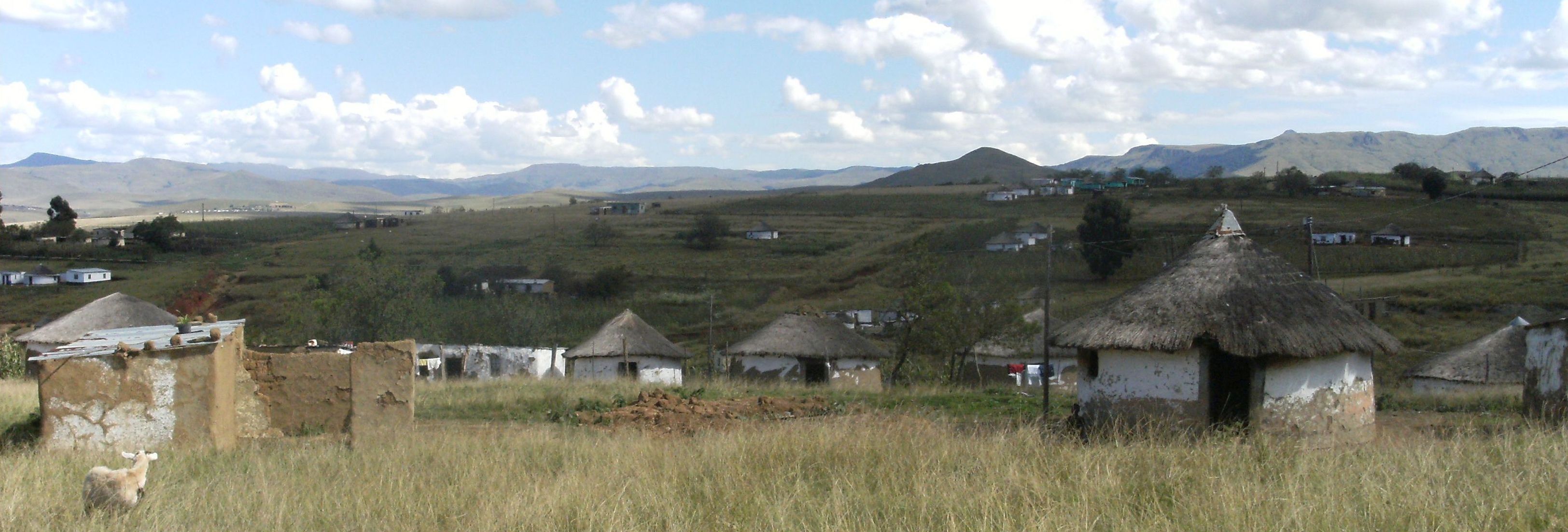
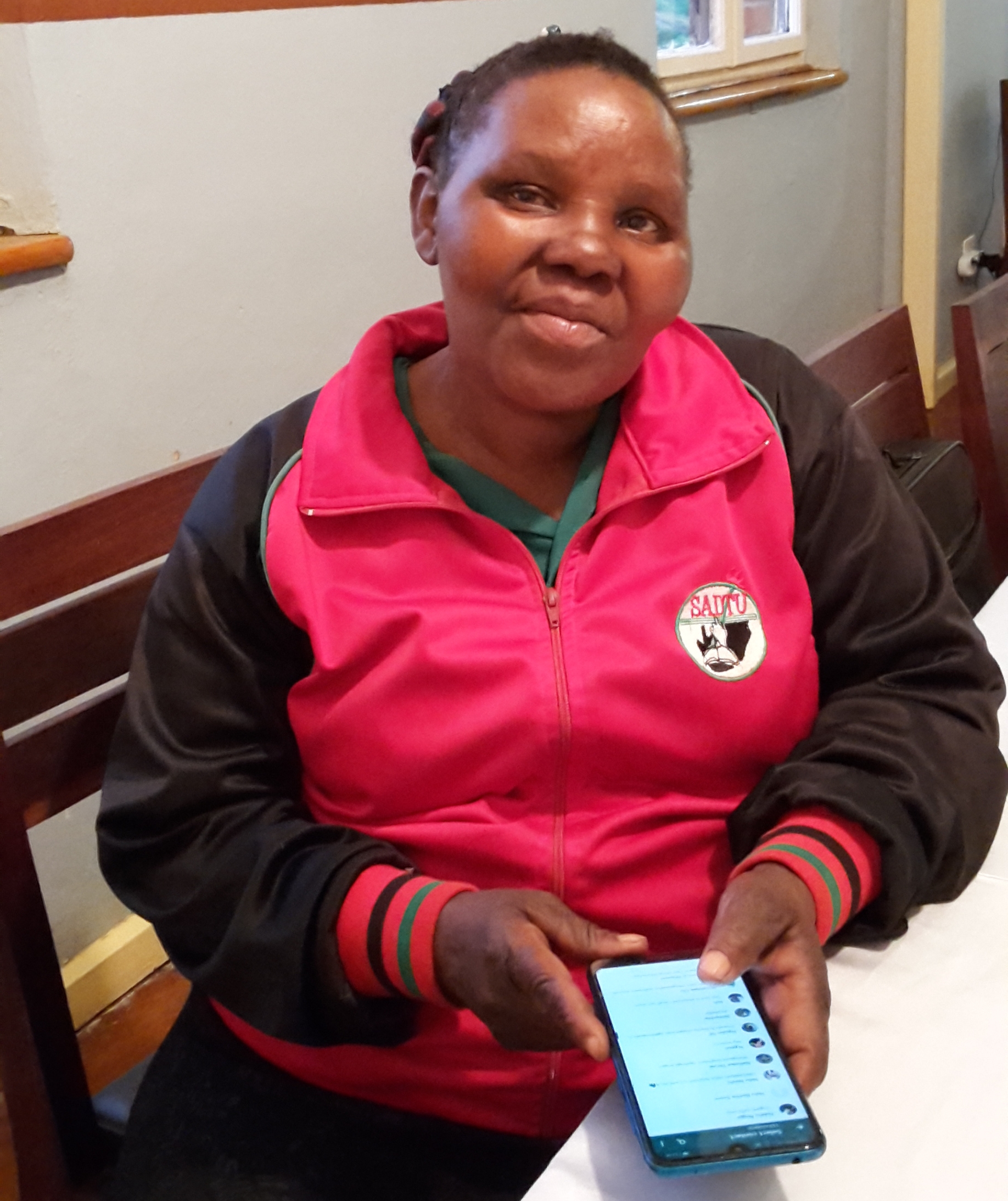
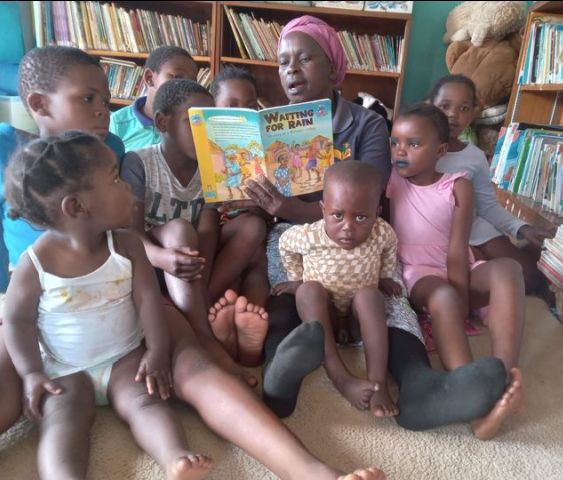
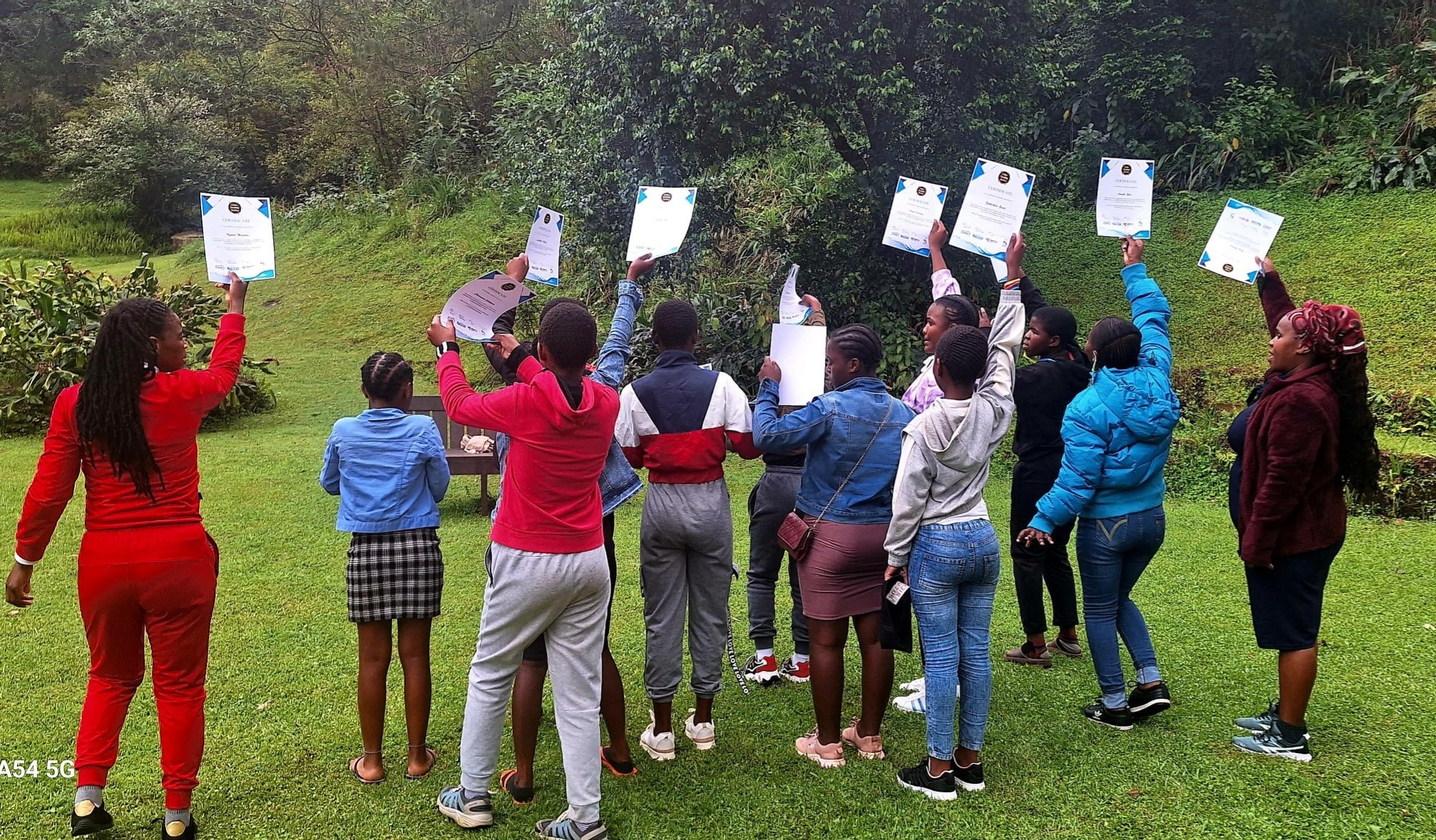

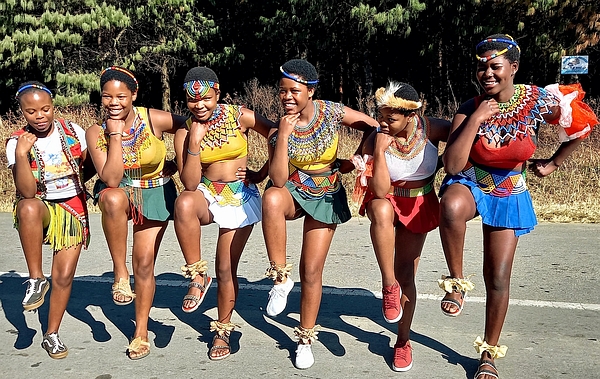

 Devon Centocow Link
Devon Centocow Link